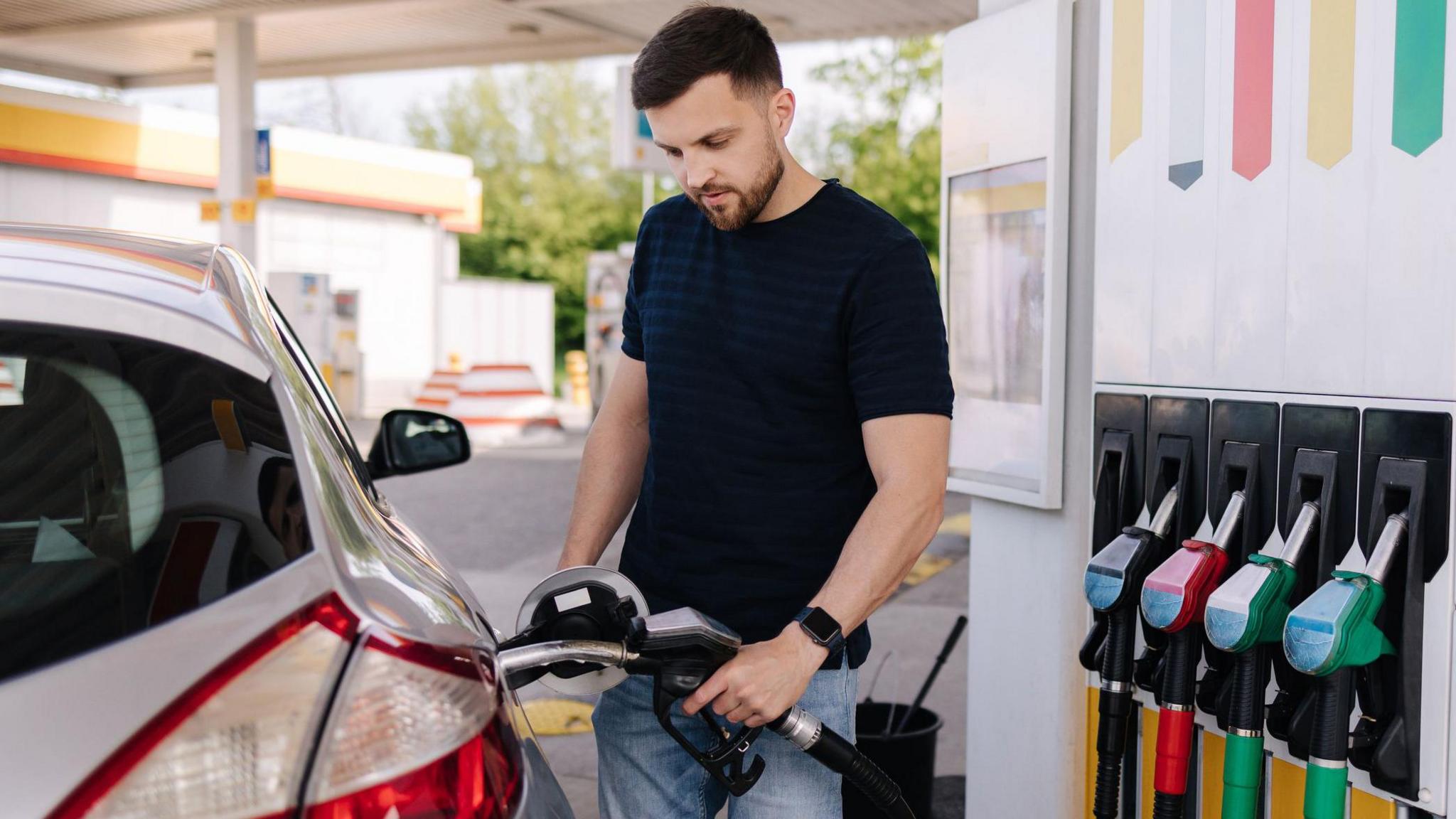Drivers 'ripped off' by fuel prices, warns watchdog

- Published
Drivers are still paying too much for fuel, the UK's competition watchdog has warned, with high prices costing motorists £1.6bn last year alone.
The Competition and Markets Authority (CMA) said that weakened competition in the fuel sector is impacting drivers' wallets.
It found that supermarkets' profit margins - which is the difference between the price they buy fuel at and what they charge motorists - had doubled since 2019.
The CMA is calling for more pressure on supermarkets so they "have to offer better prices because they know that they can’t rip consumers off", chief executive, Sarah Cardell told the BBC's Today programme.
"When it comes to road fuel, the simple answer is that drivers are still paying too much," she added.
The watchdog said the margins that supermarkets are charging drivers are double what they were in 2019.
The CMA began investigating the road fuel market last year and, at the time, made a series of recommendations to help drivers cut the cost of filling their tanks.
These included setting up fuel finder scheme that could help motorists find the cheapest fuel in their area using map apps and sat-navs.
But Ms Cardell said: "One year on and drivers are still paying too much."
Motoring group RAC said drivers paying £1.6bn more than they should have "is nothing short of outrageous."
"Drivers have every right to feel ripped off, especially knowing there is virtually no market competition between retailers," said RAC head of policy Simon Williams.
Ms Cardell said it would work with the new government to help them to bring a "real-time fuel finder scheme" into effect, showing drivers where the cheapest prices were available.
How much are prices rising for you? Try our calculator
- Published17 July 2024
Petrol prices higher than they should be, says RAC
- Published17 June 2024
The CMA claimed the scheme could save drivers up to £4.50 each time they refuel.
A number of major retailers now contribute to the voluntary price data sharing scheme but the CMA has called on the government to put a compulsory system in place.
A spokesperson for the Department for Energy Security and Net Zero, said "Retailers must give drivers a fair price for their fuel, by passing on any savings at the pump."
It said Energy Secretary Ed Miliband would consider the CMA's findings and would provide updates "in due course".
Figures from the watchdog revealed that in 2019, supermarkets were making a margin of 4.4% on fuel but that has nearly doubled to 8%.
Non-supermarket petrol stations made a 6.8% margin five years ago. It is now 8.5%.
The AA backed the need for a "mandatory ‘pump watch’ scheme".
It would allow drivers, said AA president Edmund King, to "clearly see which fuel outlets are ripping them off".
The CMA said that in prior years fuel had been relatively competitive because supermarkets such as Asda and, to some extent, Morrisons had led with lower prices.
However, Ms Cardell said: "Asda decided to increase the fuel margins that they wanted to get and instead of seeing any kind of competitive response from other retailers, all the other retailers let their margins drift up at the same time."
It is "drivers who have paid the price" for this, she said.
Last year, the CMA released a report that noted Asda and Morrisons were both purchased by private equity firms in 2021, which was the same year the supermarkets made a decision to increase their target margin on fuel.
Asda was bought in 2021 by brothers Zuber and Mohsin Issa and TDR Capital.
The billionaire Issa brothers bought half of the supermarket for £6.8bn and also own hundreds of petrol stations.
Morrisons was bought by private equity firm Clayton, Dubilier & Rice for £7bn in October 2021 after a bidding war.
The BBC has contacted Asda and other major supermarkets for comment.
The British Retail Consortium said: "Retailers will continue to work closely with the CMA and provide the necessary data to allow consumers to find the best prices for petrol and diesel."